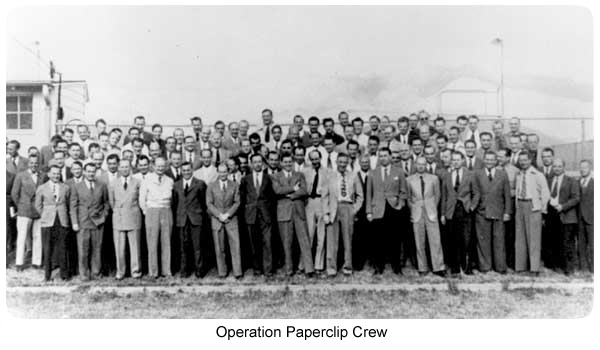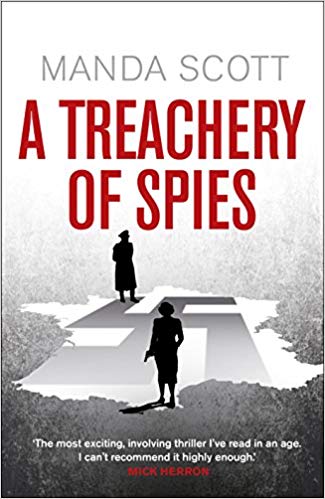What happens when there is injected
directly into the body politic of a nation, the undiluted virus of fascism?
 This was the question posed by
the closing pages of Nick Cook's enthralling non-fiction book, The Hunt for
Zero Point. The concept of zero
point gravity is a bit like Area 56 and Chemtrails – it's ripe for conspiracy
theories - but Nick is one of those incredibly grounded people who can bring it
into the realms of reality. He charts
the progress of the idea, and the hunt by the world's covert agencies to find a
way to create zero gravity (and so be able to harvest free energy without
burning fossil fuels) from the end of the second world war to the present
day.
This was the question posed by
the closing pages of Nick Cook's enthralling non-fiction book, The Hunt for
Zero Point. The concept of zero
point gravity is a bit like Area 56 and Chemtrails – it's ripe for conspiracy
theories - but Nick is one of those incredibly grounded people who can bring it
into the realms of reality. He charts
the progress of the idea, and the hunt by the world's covert agencies to find a
way to create zero gravity (and so be able to harvest free energy without
burning fossil fuels) from the end of the second world war to the present
day.
Inevitably, he touched on
Operation Paperclip, and it was conversations with Nick that started me on one
of the several threads that wound into my crime-thriller-come-espionage novel A
Treachery of Spies.
So let's look at Paperclip and
why it happened. The first thing you
need to grasp, is that by the end of the 1930s, Germany was two decades ahead
of the rest of the world in pretty much all of the sciences: engineering,
chemistry, rocketry, nuclear physics, cryptography… You name it, they had gone further, faster –
and we're at a point of the exponential curve where two decades makes a
significant difference.
Knowing this, the US and
British armies set up army units they called T-Force to go in with the advanced
troops and lock down anything and everything that looked interesting. Without T-Force, important things were being
destroyed. Squaddies arrived in a newly
taken base and trashed everything the could lay their hands on, because the
hill you took today, you might lose tomorrow, and nobody wants the bad guys to
pick up this interesting piece of unknown equipment and use it to kill
you.
But this meant interesting
pieces of unknown equipment were being ground down to metal fragments when it
would have been better were they kept intact.
So the T-Forces were set up. The
UK version was tiny, and composed mainly of old men and casualties who had been
invalided out of the army, plus teenagers too young properly to enlist. They were ill equipped and ill serviced,
though they did manage to get to Denmark in time to hoist a British flag and so
stop the Russians from annexing it.
By contrast, the US T-Force was
hugely well equipped and vastly superior in numbers. Thus, by the end of the
war, the US had shipped back home 40 –
count them: forty, four zero – tonnes of blueprints.
They had them translated and
then found that, while they could read the English, they didn't understand the
science. So a covert group was sent back to the chaos that was post-war Germany
(before the partition) to find 1600 high ranking Nazi scientists and smuggle
them out under the noses of their countrymen who had every intention of hanging
them at the Nuremburg trials.
These men, their families and
friends were given new names, new identities – and new jobs in the higher
reaches of academia, politics, and the covert agencies. They ran desks at the newly formed CIA and
rocket programmes, they helped to shape States as they moved out of the era of
slavery into one of apartheid. They
entered academia and taught economics, science, languages. They claimed to a man (all men, of course)
that they were never really followers of Hitler and they wanted to live in an
American democracy, but, according to Christopher Simpson's seminal book,
'Blowback' they numbered amongst their ranks men such as Emil Augsberg, the
architect of the 'Final Solution', and Gunter Reimener, the SS lieutenant in
charge of the death squads in Treblinka After the war. The CIA gave Reimener a fresh identity as a
Jewish survivor of the Holocaust and presumably did the same for others. We don't know all the details of all the lies
they told, only that they exist and will probably never fully be unraveled.

Blowback was first written in
the aftermath of the Iran-Contra scandal. Nick's book was published in
2002. I started writing A Treachery of
Spies in 2014 when the worst the Republican party could throw at us was Sarah
Palin and the worst we thought they'd do was overturn Roe vs Wade. Now we have Trump - and The Atlantic hired
Kevin Williamson who has said on the public record that women who have
abortions should be hanged slowly as a deterrent to others. They fired him soon
after, but only because of the outcry.
The present is built on the
bones of the past. I have no doubt that
some of those behind Paperclip thought they were doing the right thing, and
certainly it jumpstarted American science and given that the heart of most
current tech systems lies in the US military, it probably got us to where we
are today. But I am equally certain that
there were plenty of people in the US who thought that Hitler's only problem
was that he just wasn't quite
ruthless enough. They remained active
in the US just as the Brownshirts did here and they have found each other over
the years, and organized. If you doubt this, read Nancy MacLean's book
'Democracy in Chains' and then we'll have this conversation again.
Thus, we are living with answer
to Nick's question: it is all around us in the politics of the alt-right, Steve
Bannon, the Koch brothers, Farage, Rees-Mogg, Fox and the Atlanticists. Anywhere and everywhere nationalism takes on
the cloak of parochialism, of illiberal social and economic slants, of genuine,
outright prejudice stoked against 'the other'.
This is obvious, if depressing. The new question is: what do we do about
it?
When I started writing A
Treachery of Spies, the answer was less staringly obvious and I wanted to
highlight the dangers. As the writing
progressed, and global politics became more polarized, this became less of a
warning and more of an explanation. Too,
I wanted to explore the moment when the West's moral compass flipped, when harbouring the
likes of Reimener, Augsberg and Klaus Barbie became acceptable versions of
realpolitik. I wanted to look at how
those who served in France in the wild summer of 1944 - the Jedburghs, the SOE,
the amazing women and men who risked the most appalling deaths in a war against
inhumanity - turned into the NSA and GCHQ, the people who want to collect everything
about everybody and keep it forever. I found my turning point (that's another
blog) and laid out the context for the world we're living in – and had a lot of
fun along the way.
I also found myself staring at
a new question: being overwhelmingly infected, how do we rid ourselves of this
virus? That's another book.

Bantam Press (9 Aug. 2018)